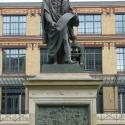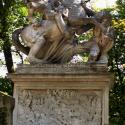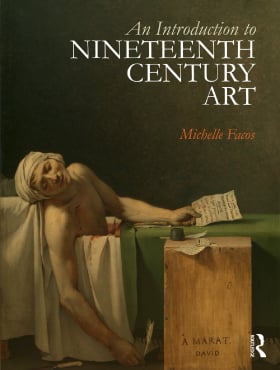De Caso, Jacques. David d’Angers: Sculptural Communication in the Age of Romanticism. Princeton, NJ: Princeton University Press, 1992
Pierre-Jean David d’Angers
Died: Paris, 6 January 1856
Nationality: French
son of decorative woodcarver Jean-Louis David
with Philippe-Laurent Roland (1809-11); French Academy in Rome (1811-15)
1807 – moves to Paris; works as a decorative sculptor on Arc du Carrousel
1810 – Prix de Rome second prize with Orthyades Dying (Musée des Beaux-Arts, Angers); meets Jacques-Louis David
1811 – wins Prix de Rome with relief Death of Epaminondas (Ecoles des Beaux-Arts, Paris)
1820s –commissions from Bourbon monarchy for decorations for Cour Carrée (1824, Louvre) and Arc du Carrousel (1827)
1826 – professor at Ecole des Beaux-Arts
1828 – begins series of 500 medallions featuring prominent contemporary men and women
1839 – Musée des Beaux-Arts in Angers begins collecting David’s work
1842 – stops teaching due to poor health
1848 – appointed mayor of 11th arrondissement (Paris); elected to Constituent Assembly as deputy for Anjou during the Second Republic
1851 – Bonapartist coup d’état; David arrested and exiled
1852 – returns to France
Travels
Rome (1811-15); London (1816); England and Germany (1828); Belgium and Greece (1851-52)
government under Bourbons and July Monarchy; cities of Strasbourg, Le Havre, Rouen, Aurillac, Aix-en-Provence
Thomas Jefferson, 1832-34, bronze (US Capitol, Washington, DC)
Johann Gutenberg, 1839-40, bronze (Strasbourg)
General Gobert tomb, 1847 (Père Lachaise Cemetery, Paris)




 Buy the Book
Buy the Book